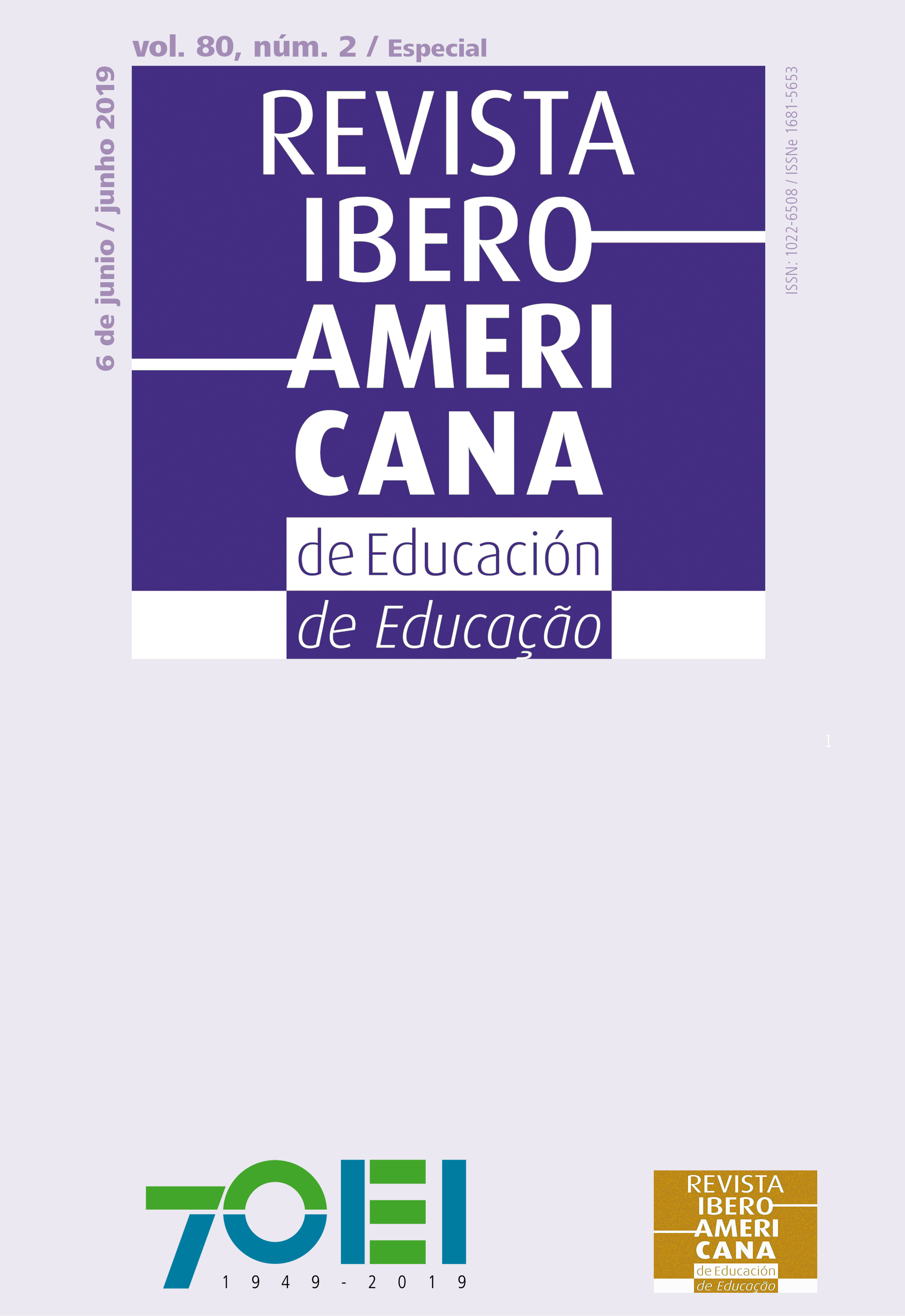Axiological keys and educational challenges in Latin America
DOI:
https://doi.org/10.35362/rie8023316Keywords:
education, values, educational systems, Ibero-AmericaAbstract
This article explores the values present in the educational policies of the respective Ibero-American countries. It is evident that the more or less explicit axiological framework of these policies has a significant impact on people and societies. In the heterogeneous and diversified Ibero-American region, the question arises about what values are needed to promote an education that really encourages the construction of a better, fairer, freer and more livable world. The study reviews the web portals of the various Ibero-American Ministries of Education. The methodology used to analyze these pages or other documents located on the internet, is the same as in the content analysis. Through this way we arrive at certain "value indicators" that offer axiological keys and allow to verify the expected differences, which, in some cases, constitute or answer to polarized discrepancies which concur with the corresponding national characteristics in the political, social, cultural and economic.
Downloads
References
Cortina, A y Conill, J. (2014). La responsabilidad ética de la sociedad civil, Mediterráneo económico, 26, 13-29. Recuperado de https://bit.ly/315gV9a
Gervilla Castillo, E. (2000). Un modelo axiológico de educación integral, Revista Española de Pedagogía, 215, 39-58.
Hernández García, J. (2010). Ideología, educación y políticas educativas, Revista Española de Pedagogía, 245, 133-150.
Hernández, A., Reigosa, R. y Rodríguez, R. (2012). La educación en valores y la formación ciudadana en las instituciones educativas, La Habana, Educación Cubana-Ministerio de Educación. Recuperado de https://bit.ly/2HRGove
Krippendorff, K. (1990). Metodología de análisis de contenido. Teoría y práctica, Barcelona, Paidós.
Laboratorio Latinoamericano de Evaluación de la Calidad de la Educación (2013). Las políticas educativas de América Latina y el Caribe, Santiago, UNESCO. Recuperado de https://bit.ly/2NvF5D0
Marín, R. (1989). “La educación personalizada desde el ángulo axiológico” (152-176), en L. E. Palacios, et al. El concepto de persona, Madrid, Rialp.
Ortega y Gasset, J. (2004). Introducción a una estimativa: ¿qué son los valores?, Madrid, Encuentro.
Pacheco, J. A. y Sousa, J. (2016). Lei de Bases do Sistema Educativo: do passado a um futuro olhar curricular, Revista Elo, 23, 89-98. Recuperado de https://bit.ly/2MnXkxH
Puelles Benítez, M. de (1993). “Estado y Educación en las Sociedades Europeas”, Revista Iberoamericana de Educación, 1, 35-57. Recuperado de https://bit.ly/2HR3Ngj
Rizvi, F. y Lingard, B. (2013). Políticas educativas en un mundo globalizado, Madrid, Morata.
Rodríguez-Arana, J. (2015). Derecho Administrativo y Administración pública en Iberoamérica, en J. Rodríguez-Arana y L. Rodríguez-Rodríguez (Dirs.): Curso de Derecho Administrativo Iberoamericano, Granada, Comares.
How to Cite
Downloads
Published
Issue
Section
License
Any authors who publish with this journal accept the following terms:
















